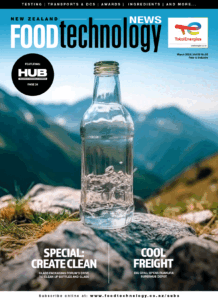
Based on the information supplied by our members, the compostable coffee cups in the New Zealand market have similar specifications and are typically certified to the EN13432 (commercial compost European standard),” she says. A total of 27 composting facilities around New Zealand process compostable food packaging including compostable coffee cups, with 11 agreeing to be listed as accepting compostable food packaging. Seven facilities are piloting processing systems or developing the capability to accept compostable cups and other compostable packaging waste. Coverage varies with North Island facilities identified in Auckland, Waikato, Bay of Plenty, New Plymouth, Hawkes Bay and Wellington, and South Island facilities in Tasman and Kaikoura.
Beyond the Bin director Kim Renshaw says the composting industry has some will and/ or capacity to process food packaging, including coffee cups and in most cases, their C-PLA lids. “The barriers they face to process compostable food packaging in their existing operations are varied and significant. Contamination, lack of identification, length of processing time, volume vs weight and organic input restrictions affect a composter’s will and capacity.
The Packaging Forum members can help solve these issues by creating an identification and standard for cups and innovating product design to reduce the length of processing time.” Mayes says the Forum has already initiated a change to its funding criteria for events this year, requiring applicants to provide evidence they will separate packaging waste either during the event or through post-event sortation. “Our members are working with community composting service providers such as Home Grown Waiheke Trust to provide local solutions and we see an opportunity to support standalone compost units as an option for small-scale local solutions. Work is underway to develop an agreed identification system for coffee cups which will clearly identify them as compostable or recyclable where facilities exist and a process for its use.”


































































































